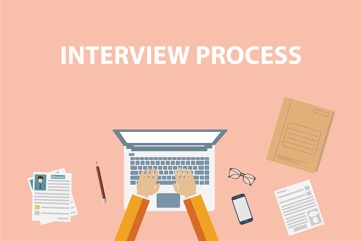How can you be memorable in an interview when you’re competing with several other candidates, some of whom might be more experienced than you? It’s vital to remember that whilst experience is certainly useful, it’s not the only factor taken into consideration. In fact, if you rely solely on your experience, you’ll probably run into trouble in your job hunt!
‘How’s that?’ you ask?
Well, interviewers aren’t just looking for experienced candidates. They’re looking to hire people with bags of energy who will fit into the company and bring a positive dynamic to the team.
Read these interview tips to learn how to be an unforgettable candidate… for the right reasons!
- Wear something eye-catching and memorable
- Use the interviewer’s first name
- Show your sense of humour
- Use example-based answers
- When they say ‘Tell me about yourself’, really tell them about yourself!
- Engage the interviewer on a personal level
- Talk about the company values
- Take notes
- Send a thank you message
10 original ways to stand out in an interview (even with no experience)
1. Wear something eye-catching
Wearing something eye-catching is a psychological way of sticking out to your interviewer, especially if they’re interviewing several candidates. Now, we’re not saying you should turn up wearing a bright orange suit (that would be overkill), but adding a pop of colour to your outfit can really make a difference. Gents, you can opt for a colourful tie. And ladies, how about a beautiful brooch?
2. Use the interviewer’s first name
Using first names is a powerful way of building a bond with someone you don’t know. Think about it; when you’re on the phone to customer service, isn’t it so much nicer when the person on the other end of the phone addresses you by your first name throughout the conversation? The same goes for interviews. Subtly use the interviewer’s first name throughout conversation to help yourself stand out.
3. Show your sense of humour
Whatever the situation, there’s always room for a bit of humour. Interviews can be a tense experience but humour is a great way of breaking down barriers and lightening the atmosphere. Being able to crack a joke in an interview will show the hiring manager that you’ve got great people skills too! Just remember not to be cheesy or inappropriate!
4. Use example-based answers
Example-based answers are the most powerful way of answering interview questions. Make sure you spend time preparing answers and thinking of examples to the most common interview questions before your interview. This is a vital step in acing your interview!
5. When they say ‘Tell me about yourself’, really tell them about yourself!
This question provides a golden opportunity for you to highlight the most interesting things about you. Granted, you don’t want this entire answer to be centred around your personal life, but definitely take advantage of this moment to point out a few intriguing things about yourself that they wouldn’t uncover in their ordinary interview questions.
6. Engage the interviewer on a personal level
As much as it’s important to be professional in an interview, it’s equally as important to find some common ground with your interviewer. It could be that you strike up a conversation about the hiring manager’s fancy shoes, or maybe you both love football. Pick up on these indicators and create a small conversation from them!
6. Talk about the company values
To really stand out in your interview, make sure you incorporate the company values into some of your answers. This will show the interview you’ve done your research and you’re serious about the opportunity.
7. Take notes
Throughout the interview, it’s good if you can note down any questions that arise or any important details about the role that are mentioned. You don’t want to spend too much time doing this as it’s more important to be engaged in what the interviewer is saying, but making a small note a few times throughout the interview shows you’re listening and a conscientious worker.
8. End on a positive note
Before you leave the interview room, be brave and take a moment to reiterate your interest in the position before leaving. This will be the very last thing the interviewer hears and remembers about you – so grasp this opportunity to leave a lasting impression!
9. Follow up with a thank you message
This one’s a goodie! Make sure you email your interviewer within 24 hours of the interview to thank them for their time and, again, gently reiterate your interest in working for them. Interviews are a two-way street, so it’s good to show the interviewer that you had a positive experience.
Ready, set, go
If you’re preparing for an interview, don’t forget to read our article on what to bring to an interview in the UK.









